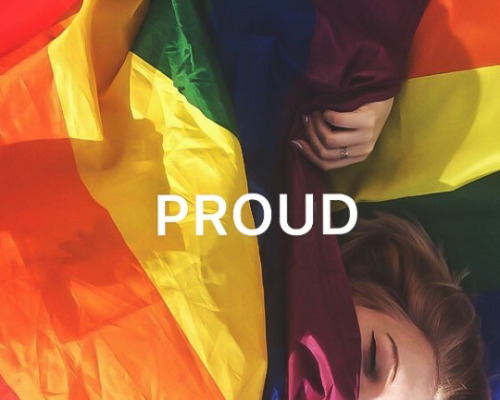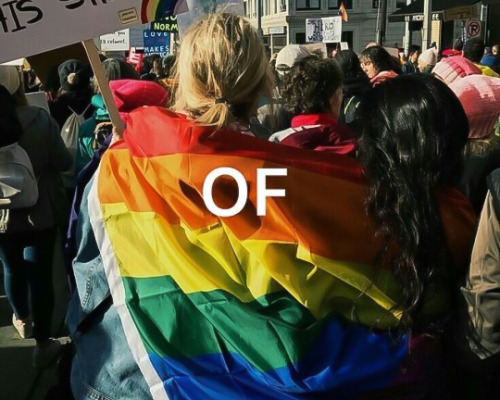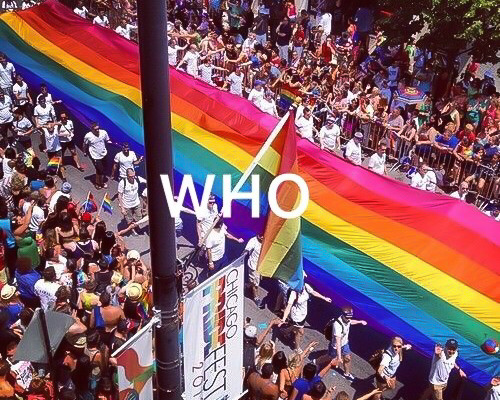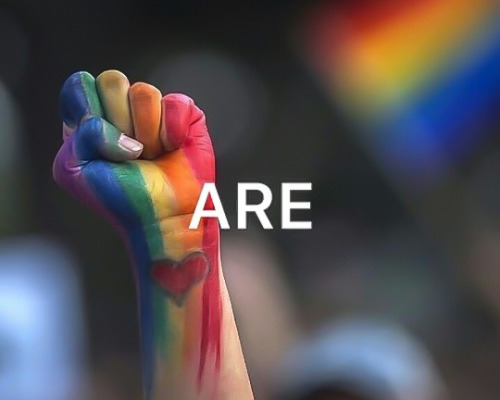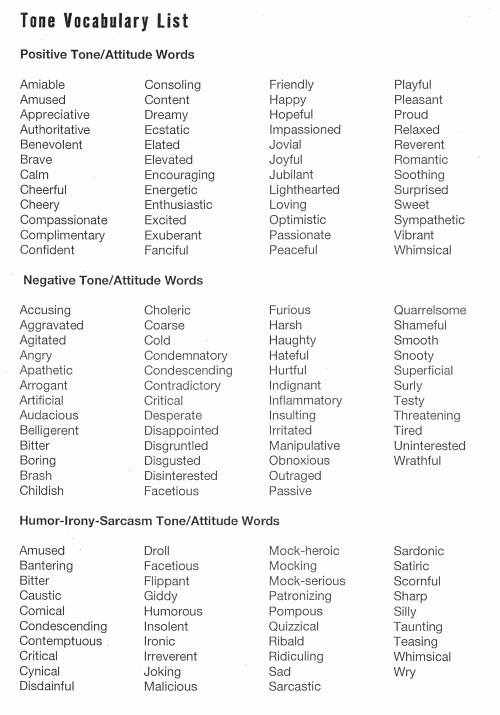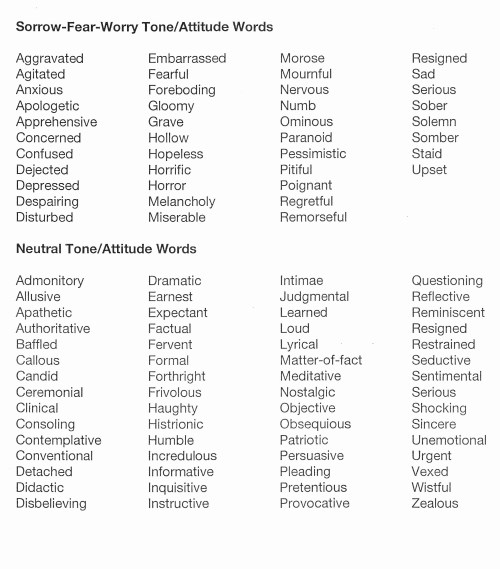Dive into your creative stream
Not Writing - Blog Posts
Reason 2 to finish your manuscript:
Because you want to read it.
Hey sorry to get political again but to my American followers:
Please be careful with the recent Supreme Court shit happening, stay safe and here's a link to the Human Rights Campaign that has several pamphlets and guides to LGBT and POC rights in every state
UGH I hate it when I have an idea but the fixation is fixationing enough for me to actually work on the idea just think about it immensely bc when i think of putting it down im like 'im not even consuming this media rn' BUT SOO WHATT BUT MY BRAIN KEEPS BEING LIKE 'NOO DONT DO THAT' WHAT ABOUT U STFU!!!!
Tagged by: @equizona
Three ships: Baji Kaisuke/Chifuyu Matsuno [Tokyo Revengers], Miya Atsumu/Kita Shinsuke [Haikyū!!] and Shinya Shigiki/Shinya Suzuki [10 Dance] plus various others that I couldn’t put here. These were just the first ones that came to me.
Last song: Merry go around of life [Vocal cover] - YAØ [Originally made by Joe Hisaishi].
Last movie: Legally blonde.
Currently reading: Convenience store woman - Sayaka Murata/Various manga/books/fanfics.
Currently watching: Tokyo Revengers, Vanitas no Catre, Uramichi onīsan!, Re-main!, BNHA S5, Cells at work!, Soul eater, Kobayashi's maid dragon S, Ballroom e yōkoso, etc.
Currently consuming: Water.
Currently craving: Something with teriyaki sauce.
Tags: @dragonwolf1224 @fandom-is-for-vendetta @sleepyone2three and anyone else that wants to do this, for that matter!
Get to know meme
Tagged by: @theclockworkmonk
Rules: tag nine people you want to know better
Three ships: clearly Hinny, Jim and Pam and Jake and Amy
Last song: Chiquitita by Abba (sorry not sorry)
Last movie: Birdman (Edward Norton I love you)
Currently reading: El cadaver exquisito (to be honest though, haven read it in a week but I’ll get back to it soon)
Currently watching: Modern family and waiting for The crown’s season 5
Currently consuming: Nothing 🥲
Currently craving: A chocolate cookie and a goon nap
Tagging:
@norakelly @gobstoneswithhector @pebblysand @bjornthorsson20 @ginnypxtter
Sorry for not having written or posted much lately. I have my first exams next month and am already dreading life, but I’ll try when I can get some time off!
So quite a while ago I discovered my account was shut down by tumblr. I was given no reason or word at all abiut it and was not aware until I attempted to log in after a break. It took nine months for support to finally send me an automated response to my inquiry of my account. After again asking why it was taken down my account was restored afte rtelling me it found nothing wrong.
Okay.
Not sure what happened but my avatar was removed by them? Haha it was a literal snowflake with the blog's name.
I must have been hacked?
That aside things look the same around here. Fun to see all the cool art out there again.
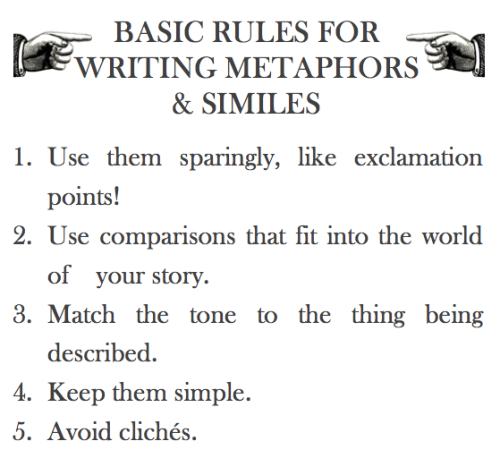
RULE #1: Use them sparingly.
Comparisons draw attention to themselves, like a single red tulip in a sea of yellow ones. They take the reader out of the scene for a moment, while you describe something that isn’t in it, like you’re pushing them out of the story. They require more thought than normal descriptions, as they ask the reader to think about the comparison, like an essay question in the middle of a multiple choice test. They make the image stand out, give it importance, a badge of honor of sorts.
Use too many comparisons and they become tedious.
Elevating every single description is like ending each sentence with an exclamation point. Eventually, the reader decides no one could possibly shout this much, and starts ignoring them.
For these reasons, you should only use metaphorical language when you really want to make an image stand out. Save them for important moments.
RULE #2: Use comparisons that fit into the world of your story.
If you’re writing from the point of view of a character who’s only ever lived in a desert, having that character say, “her look was as cold as snow” doesn’t make much sense. That character isn’t likely to have experienced snow, so it wouldn’t be a reference point to them. They’d be more likely to compare the look to a “moonless desert night” or something along those lines.
Using a comparison that ties to the character’s history or the setting of the story also do work to build the world of the story. It gives you a chance to show the reader exactly what your character’s reference points are, and builds the story’s world. If your reader doesn’t know that desert nights can get cold, this comparison informs both the things its describing: the other character’s look and the desert at night.
Here’s a metaphor from The Hitchhiker’s Guide to the Galaxy:
If you took a couple of David Bowies and stuck one of the David Bowies on the top of the other David Bowie, then attached another David Bowie to the end of each of the arms of the upper of the first two David Bowies and wrapped the whole business up in a dirty beach robe you would then have something which didn’t exactly look like John Watson, but which those who knew him would find hauntingly familiar.
He was tall and he was gangled.
This is a bizarre comparison, but it’s also a bizarre story. What’s more, David Bowie is known for his persona “Ziggy Stardust” and songs like “Space Oddity.” Bringing him up in a book about a man from Earth traversing the galaxy makes sense. What’s more it increases both of those aspects of the story: its ties to space and its bizarre-ness. The comparison unifies the story and the language being used to tell the story.
Using comparisons that fit into the world ensures that everything is working to help tell the story you want to tell.
RULE #3: Match the tone to the thing being described.
Or, match it to the way you want the thing being described to come across. It has to match what you want the reader to feel about the thing being described.
Here’s an example from Mental Floss’s “18 Metaphors & Analogies Found in Actual Student Papers” (although I think it’s actually from a bad metaphor writing contest):
She had a deep, throaty, genuine laugh, like that sound a dog makes just before it throws up.
You’re not imagining a laugh right now, are you? You’re imagining a dog throwing up. Whoever this girl is, you’re going to make sure never to tell a joke in front of her.
This is not getting the right point across.
Remember the David Bowies? Remember how the comparison was fun and bizarre, just like the tone of the book is fun and bizarre?
This is not David Bowies stacked on top of one another.
It’s not enough for a comparison to be accurate. It has to bring about the same emotions as the thing it’s describing.
If this is being told from the point of view of a character who hates the laughing character and we’re supposed to hate her and her laugh. It actually does work, but from the use of the word “genuine,” I don’t think this is the case.
Make sure you always pay attention to the tone of the comparison.
RULE #4: Keep them simple.
Don’t use a comparison that requires too much thought on the reader’s part. You never want anyone sparing even a moment on the question: “but how is x like y?”
Here’s another example from that Mental Floss list:
Long separated by cruel fate, the star-crossed lovers raced across the grassy field toward each other like two freight trains, one having left Cleveland at 6:36 p.m. traveling at 55 mph, the other from Topeka at 4:19 p.m. at a speed of 35 mph.
Again, this is a humorous example. It’s supposed to be bad, but many writers have made mistakes like it. They choose two images that don’t have enough in common for the reader to make an easy and obvious comparison between the two. Sometimes, the writer subconsciously acknowledges this, and expands the comparison to a paragraph, detailing the ways the two things are alike.
If you find yourself doing this, take a step back and ask yourself if this is really the best comparison to be using. The best comparisons are the simple ones. All the world’s a stage. Conscience is a man’s compass. Books are the mirrors of the soul.
What about that David Bowie quote, you ask? Douglas Adams broke this rule, but he broke it purposefully to get that bizarre quality to the language. He still avoids reader confusion, the reason for this rule, by bringing the comparison back to its point at the end: “he was tall and he was gangled.”
RULE #5: Avoid cliches.
The best comparisons are fresh ones. No one wants to hear that she had “skin as white as snow” and lips “as red as roses” anymore. The slight understanding it brings to the description isn’t worth the reader’s groans when they realize you just made them read that again.
A cliche is a waste of space on the page. It’s not going to be the memorable line you want it to be. It’s not going to awe the reader.
Good similes in metaphors require some creative thinking.
In the vein of rosy lips and snow-colored skin, here’s a fun example from Harry Potter and the Chamber of Secrets. It’s the poem that Ginny wrote for Harry on Valentine’s Day:
His eyes are as green as a fresh pickled toad,
His hair is as dark as a blackboard.
I wish he was mine, he’s really divine,
The hero who conquered the Dark Lord.
These aren’t comparisons you’re like to have come across before and their originality comes from rules #2 and #3. Rowling needed comparisons that fit in Ginny’s frame of reference. She also needed comparisons that were humorously bad, as they’re being recited by a grumpy creature dressed in a diaper, who is sitting on Harry’s ankles, forcing him to listen.
As a witch at school, blackboards and fresh pickled toads fit Ginny’s frame of reference. Neither are particularly known for being nice to look at, so they fit the tone, too.
Using her character, setting, and tone, using, in other words, her story, Rowling was able to create similes that are unique and memorable.
It’s the same thing Adams did with his Bowie analogy.
If you, too, use your story to inform your language, writing new and wonderful similes and metaphors should be just as simple.
Happy Trans Day of Visability!
Happy trans day of visibility to all of the trans women: you are so loved 💖
Happy trans day of visibility to all of the trans men: you are so loved 💖
Happy trans day of visibility to all of the trans people: you are so loved 💖
Happy trans day of visibility to all of the nonbinary people: you are so loved 💖
Happy trans day of visibility to all of the trans people who are out: you are so loved 💖
Happy trans day of visibility to all of the trans people who are not out: you are so loved 💖
Happy trans day of visibility to all of the disabled trans people / trans people with disabilities: you are so loved 💖
Happy trans day of visibility to all of the trans people who use mobility aids: you are so loved 💖
Happy trans day of visibility to all of the trans people with chronic illnesses: you are so loved 💖
Happy trans day of visibility to all of the trans people with chronic pain: you are so loved 💖
Happy trans day of visibility to all of the trans people of colour: you are so loved 💖
Happy trans day of visibility to all of the trans and nonbinary and gender-nonconforming and agender and genderqueer and all non-cis people: you are so loved 💖✨💕🌟
I think you nailed it on the head. It certainly had issues, like the stuff with your religion choice and the lazy re-use of MC faces and the now regular forced male LI, but I agree everyone was certainly ready to jump on that bandwagon for multiple reasons.
Unpopular opinion: despite it's more serious issues, I actually enjoyed home for the holidays. I just took it for what it was worth. Plus I really liked Holly. She is gorgeous and I did not find her boring at all.
I’m neutral on this one, I’m not sure if it was actually a terrible book or we all just collectively agreed and followed along with what the majority said because if you disagree with everyone, well…
I only wish they used better MC’s faces instead of recycled love hacks ones

Some examples of why the Oxford comma is generally a good idea

Little tribute to the rover that’s had me emotional all day… RIP Oppy.
I kept myself from writing my own original fiction for a long time because I worried so much about not writing “like other writers”.
I’d read an amazing book and want to make a reader feel all the things I was feeling, but then decided “well, there’s no way I can write like THAT” and whatever inspiration I had would die.
Listen. You don’t have to write like other writers. You have to write like YOU.
No one can write the way you can, because your voice belongs to you and only you.
I finally stopped listening to the voice that told me I shouldn’t write because I wouldn’t be as good as other writers. And when I did, I wrote a book in a little over a month.
Write the stories that you would want to read. Write the stories that you’ve been hiding in your heart.
Write them, because no one else can.

Literally no one who follows me is going to know what this means, but HBomberguy, a Youtuber known for Video Essays about pop culture and gaming made a promise that he would live stream himself playing Donkey Kong 64, in its entirety (including picking up every single banana) and all money would go to a UK charity for trans youth (Mermaids) and his initial goal was $3,000 and now it’s been 26 hours into the stream and he’s already over $51k. I just need people to know about this https://m.twitch.tv/hbomberguy
I just wanted to note that if your character isn’t capable of being magically healed and they get injured
Show them being in pain
Hours after the fact
Days
Give them a wrist that clicks funny for months instead of a badass scar that only gets attention when the character needs to seem cooler
After slipping down a whopping three stairs yesterday morning, I feel like I got hit by a truck today and all I can think is, “my god, how do my characters get up and walk around like nothing happened after they get hurt” and then I answer myself with, “oh, unrealistic writing, that’s how.”
Yeah, exactly my thought too. And they are laying on those red herrings too heavily.
So. Beckett took wards from a mirror to have a place for training with his advanced magic. That’s why Atlas saw his bracelet. Because Beckett left the mirror without wards MC fell into it and got into the mirror realm. That’s why he was so distraught after MC disappearance, it was his fault. And that’s why he’s so nice now or at least tries to be.
And other friends suspicious behavior just a red herring and they’re probably planning some party to cheer MC up or something like that.
At least that what I think now, I haven’t finished chapter yet.
Senior Writer Explains Why Certain Books Are Released First and Certain Characters Get Higher Priority



(original post from u/elizaofhousestark on reddit)
Cheat Sheet for Writing Emotion
Anger:
Grinding teeth
Narrowing eyes
Yelling
A burning feeling in the chest
Heavy breathing
Unjustified or justified accusations towards other characters
Jerky movements
Glaring
Violence
Stomping
Face reddening
Snapping at people
Sadness:
Lack of motivation
Messy appearance
Quiet
Slow movements
Crying
Inability to sleep
Frowning
Red eyes
Isolating oneself
Fatigue
Not concentrating
Love:
Thinking about someone
Good communication
Not forcing a friend/lover into something
Smiling randomly
Making eye contact with loved one
Nervous behaviors (fiddling hands, biting lip)
Cuddling
Flirting
Inside jokes
Holding hands
Kissing
Offering gifts
Fluttering stomach
Racing heart
Losing track of time while with loved one
Daydreaming
Denial:
Disagreement with someone
Shaking head frantically
Backing away
Putting hand on one’s chest
Rapid speaking
Rationalization or justifying something
Dismissing someone or something
Embarrassment:
Blushing
Avoiding eye contact
Grimacing
Looking down
Changing the conversation
Rubbing back of neck
Shoulders slumping
A weak voice
Tightening chest
Panicked thoughts
Running away
Getting quiet
Concentrating on something else
Happiness
Smiling
Laughing
Squealing
Bouncing on toes
Warmth in chest
Fast pulse
A sense of contentment
Relaxed posture
Quick movements
Breathlessness
Desire to help
Fear:
Face going pale
Panicked thoughts
Jerky movements
Mind racing for a solution
Running
Freezing
Fighting
Fawning (doing what people tell you to do)
Side note: flight, fight, freeze, and fawn are all reactions to adrenaline. Aka the fight or flight response
Thinking of survival
Rapid breathing
A panicked feeling
Guilt:
Feeling horrible about oneself
Lying
Grimacing
Trying to redeem themselves
Asking for forgiveness
Anxious thoughts
I could not agree more. This story plot setup may have worked well for the other LIs but yeah, not with Kaitlyn. Like others have reiterated, This does not only effect Kaitlyn as her character says herself. She is not completely in the wrong here.
So it also puts her in a unique position. No, she did not discuss this with MC before agreeing with it. And no, belittling MC's writing was not a smart response. However, I am not sure how I will feel if she shows up and apologises for being completely in the wrong. Because again, she is not.
MC was not dead set on actually going to London anyway. She could still write in New York. They could do long distance. They could have brainstormed something! But no.
I will retain hope the writers still have this.. I have theories of what will happen.. but I am a little nervous all the same.
What I hate most about the breakup in The Senior, at least in regards to Kaitlyn, isn’t so much that it happened. I figured the Journal and the Parents was setting this up before a big come back to together moment later. No. What bothers me is why it happens. This MC is supposed to be a writer, a potential fiction writer if you decided to do that, and here she is just so unimaginative that she can’t possibly think of any other way this is solved other than breaking up with Kaitlyn?
Oh, and selfish too? Because Kaitlyn is right. This decision is no longer just theirs anymore. It wasn’t Kaitlyn signed in NYC, it was the band. Now Anissa, Rachel, and Amara are involved. And it’s an actual gig. Even if Kaitlyn sided with MC, the vote would be 3-2. How can the MC feel she has the right to choose for four other people.
Like, MC, you can write anywhere. But I’ve seen you when you “lose” Kaitlyn, twice, you aren’t happy.

Today is the Transgender Day of Remembrance. Honor those killed in anti-trans acts of violence; mourn the lights in our community that have gone out; say their names and tell their stories; and vow to fight for those still with us.
writing tip: don’t tell us your character’s backstory. don’t tell us what your character is thinking. don’t tell us what your character is doing. don’t tell us anything. the reader should simply look at a blank page and be suddenly overcome with emotion.
Me writing fanfic:
Too, many, commas,,,
Is this ooc??
I used that word already
Do people even blush this much??
*squints* Is that canon?
Tropes
*cries while writing death scene*
Wait what happened last chapter?
I wrote like a thousan- 354 words!?
*googles the lifespan of a tropical fish*
have I spelt his name wrong all this time?
Would they say that tho?
Changes plot 539932 times
Loses inspiration, goes back to tumblr
Reasons to Keep Writing
•everyone starts small. just because you’re not big now, doesn’t mean you’ll never be. and if you’re just starting out, keep in mind those bigger blogs have been writing for much longer than you. building a following takes time.
•there will always be someone who enjoys your writing. every like, reblog, and comment is one person who enjoyed what you wrote and i can assure you they want more! and remember, not everyone remembers to leave evidence that they liked your writing or they might just be too nervous to interact with you. invisible fans exist, and you’ve got them.
•going along with that last one, your writing has the potential to help others! you could write about a minority, or maybe you could publish a little something comforting at the exact time someone else needs it. and most of the time, when you affect someone like this they’ll tell you, whether it be through tags, or a private message or whatever. that’s an amazing feeling.
•getting a compliment from someone becomes a sure-fire way to make your day better. nothing feels greater than seeing a comment from someone saying how much they love something you worked hard on. maybe write down these comments somewhere, so you can look at them when you’re feeling negative about your skills as a writer.
•writer’s block is not the end of your writing career. it sure feels like it sometimes, but everyone, even the popular writers you look up to, suffer from writer’s block. everyone puts out work they’re not 100% satisfied with sometimes, and that’s okay! when you get out of this slump, your writing will be better than ever before and you’ll enjoy it again. keep writing through a block so you can get there sooner.
These are the things I think about when I feel bad about my writing, so I hope they can help someone else too.
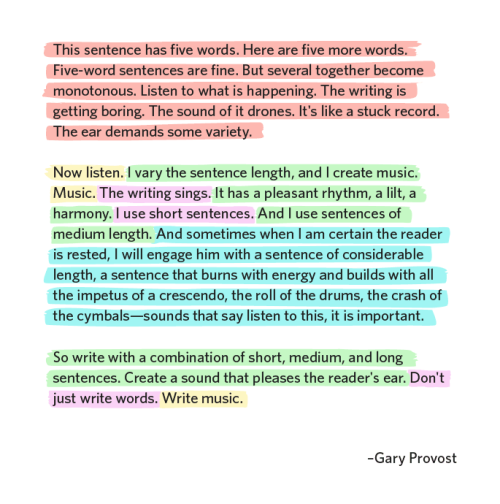
A very useful demonstration of the importance of sentence length.
if you ever doubt your writing, be it your themes, or the reason behind it, remember that h.g wells wrote war of the worlds both as a commentary on colonialism and the horrors it brings, and because he fucking hated his neighbours and his 13 hour job, and wanted to write about the town in which he lived getting blasted to the fucking ground by lasers into an irreparable heap and all of the townspeople dying painfully
you, too, can channel your hatred for that guy that lives down the hall and blasts music at 4am into the one of the most influential science fiction stories ever written! fuck it! i believe in you!!
Your Character’s Personality
Personality is the most important thing about your character.
So, whenever I see character sheets, most people just put a little paragraph for that section. If you’re struggling and don’t know what your character should say or do, what decisions they should make, I guarantee you that this is the problem.
You know your character’s name, age, race, sexuality, height, weight, eye color, hair color, their parents’ and siblings’ names. But these are not the things that truly matter about them.
Traits:
pick traits that don’t necessarily go together. For example, someone who is controlling, aggressive and vain can also be generous, sensitive and soft-spoken. Characters need to have at least one flaw that really impacts how they interact with others. Positive traits can work as flaws, too. It is advised that you pick at least ten traits
people are complex, full of contradictions, and please forgive me if this makes anyone uncomfortable, but even bullies can be “nice” people. Anyone can be a “bad” person, even someone who is polite, kind, helpful or timid can also be narcissistic, annoying, inconsiderate and a liar. People are not just “evil” or “good”
Beliefs:
ideas or thoughts that your character has or thinks about the world, society, others or themselves, even without proof or evidence, or which may or may not be true. Beliefs can contradict their values, motives, self-image, etc. For example, the belief that they are an awesome and responsible person when their traits are lazy, irresponsible and shallow. Their self-image and any beliefs they have about themselves may or may not be similar/the same. They might have a poor self-image, but still believe they’re better than everybody else
Values:
what your character thinks is important. Usually influenced by beliefs, their self-image, their history, etc. Some values may contradict their beliefs, wants, traits, or even other values. For example, your character may value being respect, but one of their traits is disrespectful. It is advised you list at least two values, and know which one they value more. For example, your character values justice and family. Their sister tells them she just stole $200 from her teacher’s wallet. Do they tell on her, or do they let her keep the money: justice, or family? Either way, your character probably has some negative feelings, guilt, anger, etc., over betraying their other value
Motives:
what your character wants. It can be abstract or something tangible. For example, wanting to be adored or wanting that job to pay for their father’s medication. Motives can contradict their beliefs, traits, values, behavior, or even other motives. For example, your character may want to be a good person, but their traits are selfish, manipulative, and narcissistic. Motives can be long term or short term. Everyone has wants, whether they realize it or not. You can write “they don’t know what they want,” but you should know. It is advised that you list at least one abstract want
Recurring Feelings:
feelings that they have throughout most of their life. If you put them down as a trait, it is likely they are also recurring feelings. For example, depressed, lonely, happy, etc.
Self Image:
what the character thinks of themselves: their self-esteem. Some character are proud of themselves, others are ashamed of themselves, etc. They may think they are not good enough, or think they are the smartest person in the world. Their self-image can contradict their beliefs, traits, values, behavior, motives, etc. For example, if their self-image is poor, they can still be a cheerful or optimistic person. If they have a positive self-image, they can still be a depressed or negative person. How they picture themselves may or may not be true: maybe they think they’re a horrible person, when they are, in fact, very considerate, helpful, kind, generous, patient, etc. They still have flaws, but flaws don’t necessarily make you a terrible person
Behavior:
how the character’s traits, values, beliefs, self-image, etc., are outwardly displayed: how they act. For example, two characters may have the trait “angry” but they all probably express it differently. One character may be quiet and want to be left alone when they are angry, the other could become verbally aggressive. If your character is a liar, do they pause before lying, or do they suddenly speak very carefully when they normally don’t? Someone who is inconsiderate may have issues with boundaries or eat the last piece of pizza in the fridge when they knew it wasn’t theirs. Behavior is extremely important and it is advised you think long and hard about your character’s actions and what exactly it shows about them
Demeanor:
their general mood and disposition. Maybe they’re usually quiet, cheerful, moody, or irritable, etc.
Posture:
a secondary part of your character’s personality: not as important as everything else. It is advised you fill this out after. Posture is how the character carries themselves. For example, perhaps they swing their arms and keep their shoulders back while they walk, which seems to be the posture of a confident person, so when they sit, their legs are probably open. Another character may slump and have their arms folded when they’re sitting, and when they’re walking, perhaps they drag their feet and look at the ground
Speech Pattern:
a secondary part of your character’s personality: not as important as everything else. It is advised you fill this out after. Speech patterns can be words that your character uses frequently, if they speak clearly, what sort of grammar they use, if they have a wide vocabulary, a small vocabulary, if it’s sophisticated, crude, stammering, repeating themselves, etc. I personally don’t have a very wide vocabulary, if you could tell
Hobbies:
a secondary part of your character’s personality: not as important as everything else. It is advised you fill this out after. Hobbies can include things like drawing, writing, playing an instrument, collecting rocks, collecting tea cups, etc.
Quirks:
a secondary part of your character’s personality, not as important as everything else. It is advised you fill this out after. Quirks are behaviors that are unique to your character. For example, I personally always put my socks on inside out and check the ceiling for spiders a few times a day
Likes:
a secondary part of your character’s personality, not as important as everything else. It is advised you fill this out after. Likes and dislikes are usually connected to the rest of their personality, but not necessarily. For example, if your character likes to do other people’s homework, maybe it’s because they want to be appreciated
Dislikes:
a secondary part of your character’s personality, not as important as everything else. It is advised you fill this out after. Likes and dislikes can also contradict the rest of their personality. For example, maybe one of your character’s traits is dishonest, but they dislike liars
History:
your character’s past that has key events that influence and shape their beliefs, values, behavior, wants, self-image, etc. Events written down should imply or explain why they are the way they are. For example, if your character is distrustful, maybe they were lied to a lot by their parents when they were a child. Maybe they were in a relationship for twenty years and found out their partner was cheating on them the whole time. If their motive/want is to have positive attention, maybe their parents just didn’t praise them enough and focused too much on the negative
On Mental and Physical Disabilities or Illnesses
if your character experienced a trauma, it needs to have an affect on your character. Maybe they became more angry or impatient or critical of others. Maybe their beliefs on people changed to become “even bullies can be ‘nice’ people: anyone can be a ‘bad’ person”
people are not their illness or disability: it should not be their defining trait. I have health anxiety, but I’m still idealistic, lazy, considerate, impatient and occasionally spiteful; I still want to become an author; I still believe that people are generally good; I still value doing what make me feel comfortable; I still have a positive self-image; I’m still a person. You should fill out your character’s personality at least half-way before you even touch on the possibility of your character having a disability or illness
Generally everything about your character should connect, but hey, even twins that grew up in the same exact household have different personalities; they value different things, have different beliefs. Maybe one of them watched a movie that had a huge impact on them.
Not everything needs to be explained. Someone can be picky or fussy ever since they were little for no reason at all. Someone can be a negative person even if they grew up in a happy home.
I believe this is a thought out layout for making well-rounded OCs, antagonists and protagonists, whether they’re being created for a roleplay or for a book. This layout is also helpful for studying Canon Characters if you’re looking to accurately roleplay as them or write them in fanfiction or whatever.
I’m really excited to post this, so hopefully I didn’t miss anything important…
If you have any questions, feel free to send a message.
- Chick

